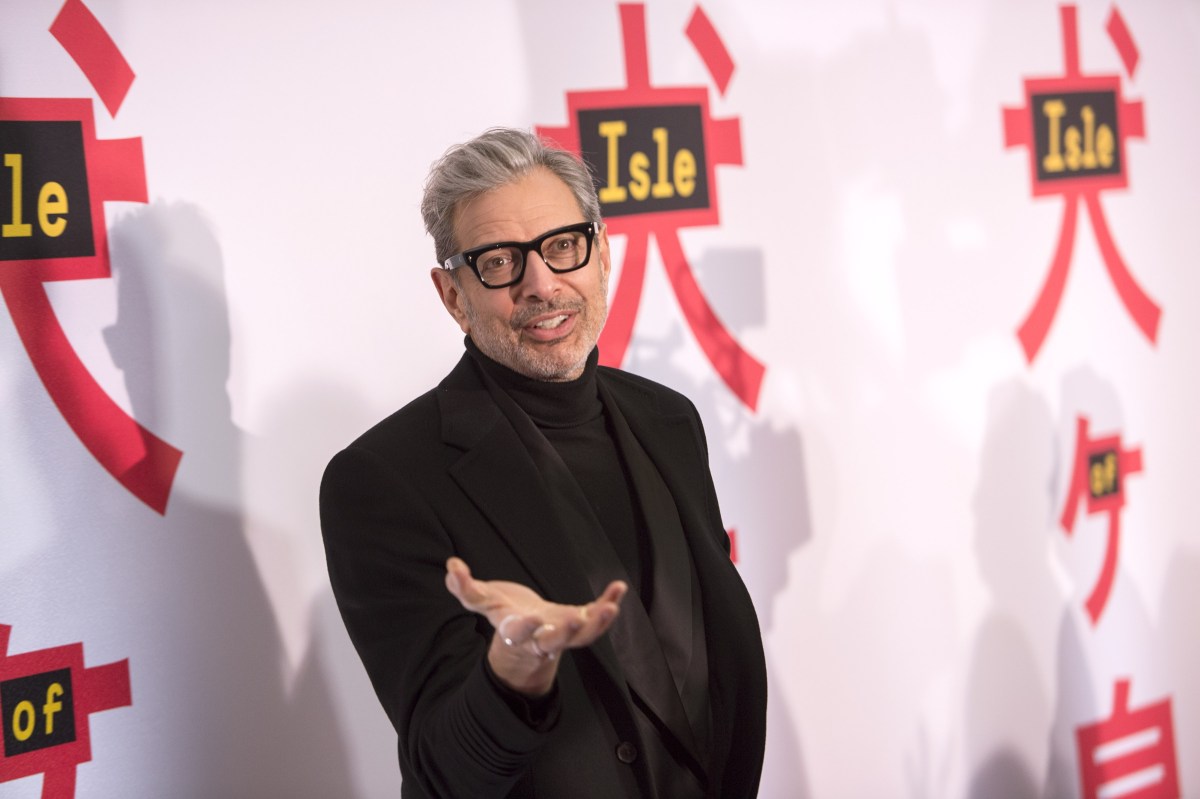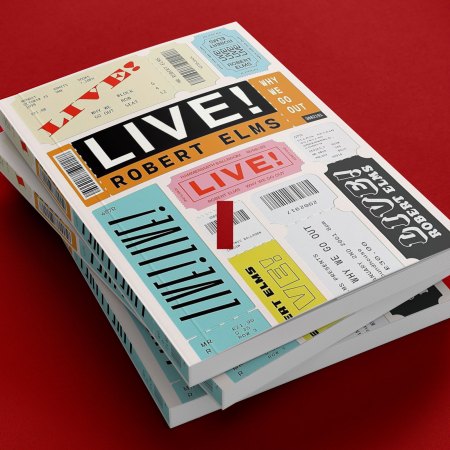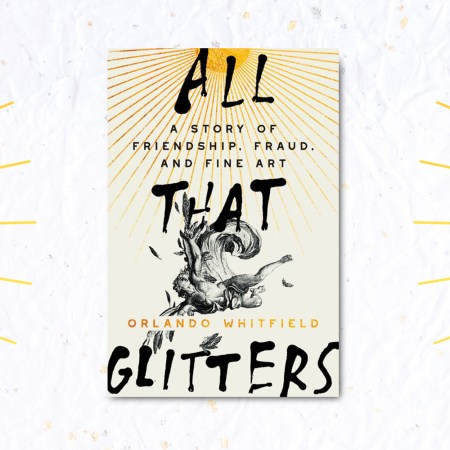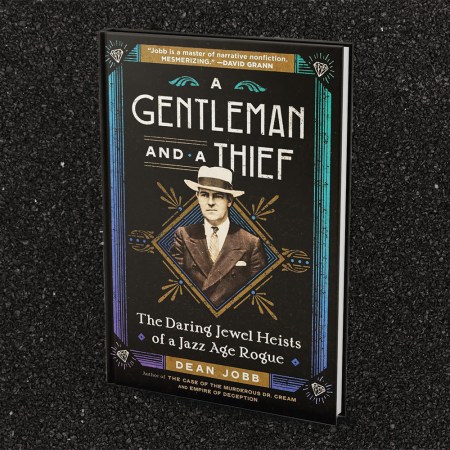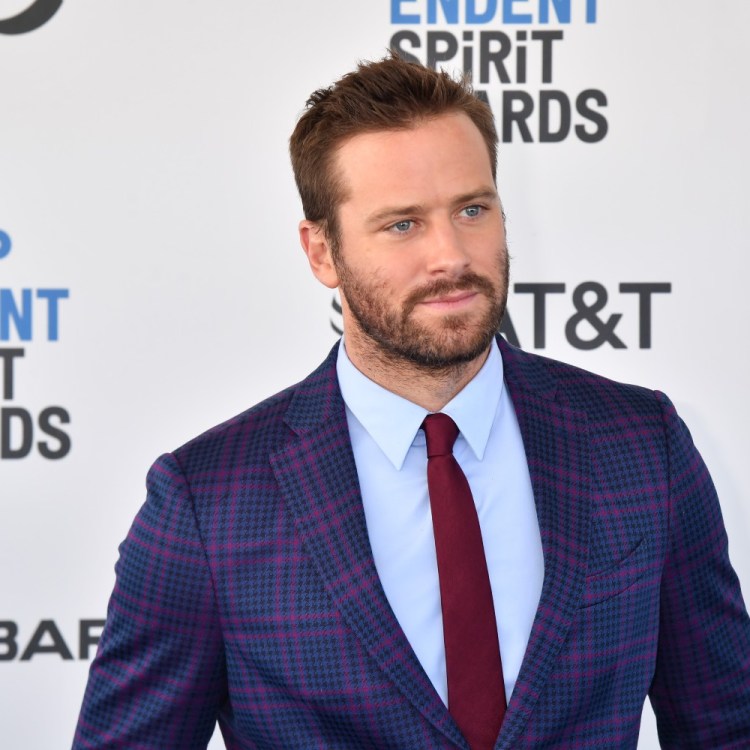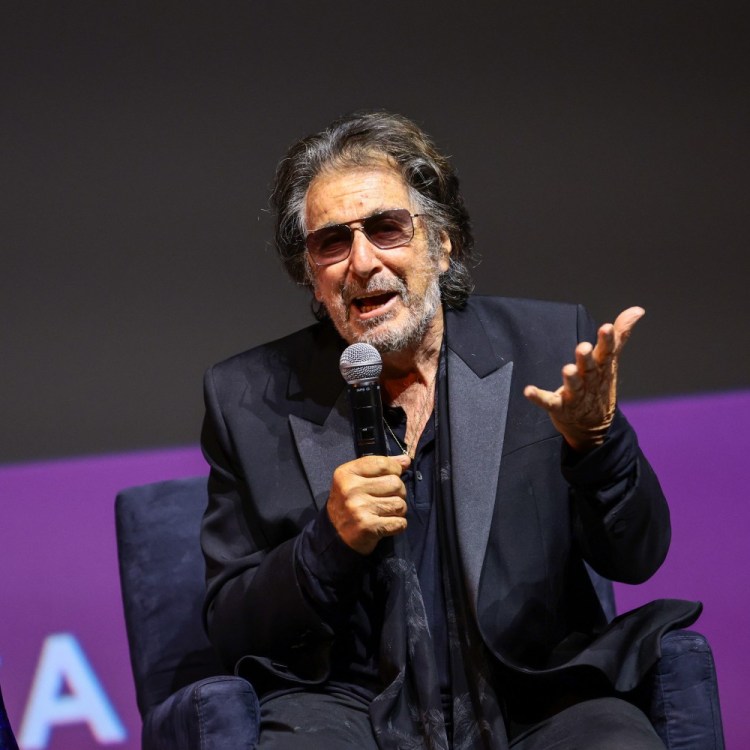Jeff Goldblum bends to sit at the white-clothed table across from me, all legs at 6′ 4″. Jovial and familiar, he plays the “I am humbled” card as he discusses voicing the raggedy but heroic canine Duke exiled to a garbage island with his pack on Wes Anderson’s stunning stop-motion animated Isle of Dogs. (Anderson snagged a Silver Bear for Best Director at the Berlinale last month when the movie premiered.)
With Goldblum’s arrival, the energy at the table immediately lifts and spins as the handsome star assembles his long limbs and settles into a dining-room chair wearing a tailored suit of an indescribably dandy dusty blue, no tie, and a navy shirt beneath. It’s like he’s an actor playing Goldblum brilliantly down to the cracks and stutters, that peculiar high jump of a laugh.
Goldblum, 65, has the gift of charm, as if bestowed by a genie. It hovers around him like dope smoke, a contact high. He’s brilliantly self-effacing – after all, the Pittsburgh-born son of Eastern European Jews is voicing a dog in an animated film even if it is by Anderson and touches on such kid-challenging topics as genocide and totalitarianism. It ain’t King Lear, a role by this point in his career he’s capable of playing.
Goldblum is perhaps best known as the chatty chaos-theory spewing asshole Dr. Ian Malcolm gleefully munched by one of Steven Spielberg’s dinosaurs in Jurassic Park, apparently the only thing that can shut him up. Most recently, he played the metrosexual villain Grandmaster in Taika Waititi’s Thor: Ragnarok. Steal scenes much?
He is also a veteran of Anderson’s live action films – The Grand Budapest Hotel (2014) and The Life Aquatic with Steve Zissou (2004). He self-effaces, turning the dial to earnest and, yes, perhaps humbled: “I wouldn’t say veteran….I’ve done three, whatever that makes me. Well, it makes me very lucky. To work with him once is enough and spectacular. Twice is more than my cup runneth over. Three times is some kind of miracle.”
Goldblum relishes the summer-camp adventurousness of the Anderson working model (channeling Moonrise Kingdom here). “He’s the opposite of routine as I’m sure many people have said better than I’ll be able to say,” he says self-effacingly and then turns on the hose of enthusiasm. “He’s some of guru, or some kind of enlightened fakir, and master artist, and master teacher just in cinema. He’s conspicuously present and full of adventure, supreme life, enthusiasm, fertile imagination, whimsy, humor, elegance, graciousness, kindness, all of that, and every time in my experience that you’re around him is a kind of magical just like his movies come out.”
Clearly, Anderson has enchanted Goldblum. This, the actor reveals, is what it’s like to collaborate with the cool nerds. “The experience is a kind of magical adventure and delicious, unexpected, kind of a thrill ride whether it’s all the details that he’s attended to with the location of the restaurant where I first met him, or where we shot Life Aquatic in Cinecitta where Fellini [shot].”
Goldblum pauses to collect his memories, pushing his glasses up the bridge of his nose and smiling wistfully as he explains, his voice touched with awe: “I had seen Fellini shoot a day there once.” Should he tell this story? Should he digress? Yes: “Michelle Pfeiffer and I were doing press in Rome for Into the Night in 1983. I’ll be darned if Fellini wasn’t shooting Ginger & Fred and I peered in and saw just a little bit of him with Giulietta Masina and Marcello Mastroianni, for heaven’s sakes.”
What Goldblum is trying to capture, and what his co-stars Bill Murray, Bob Balaban, Edward Norton, Bryan Cranston and Live Schreiber also try to articulate, is that the making of the film is the experience. That, like Fellini on set, there is a magic of which only a fraction becomes realized on the screen. With Anderson, it’s the way he curates cinema history, books, art, costumes – and actors – that makes him unique.
Goldblum describes Anderson as “an un-narcissistic true artist. To see him on a set, one realizes he’s a people person too. He loves putting these groups together. He reminds me of Robert Altman in that way. But he’s also original. He’s a student of what’s come before, stands on his favorite shoulders of favorite giants. But, no, because he’s original he’s a pioneer and forging his own way. I guess that’s what’s called an artist. They have their own vision…It comes out into something original, I think, and progressive, yeah.”
And, while Goldblum is part of a large pack, he appreciates the unique connection he and the director share, even if it’s hard to dissect. “I just feel lucky,” he said. “Today I walked by him. I’ve never worn this suit before, it’s the first day I’m ever wearing it, and he went ‘oh.’ The way he seems to appreciate me or find me interesting always is surprising and delightful. And he was like, ‘oh, what a delicious suit’ or something like that. I always want to open up and share something. I’m excited around him.”
Given their past relationship, was Duke written with Goldblum’s in mind? He begins with humility: “I wonder. I don’t think I ever asked if he was thinking of ten other people, or whether ten other people weren’t available, or he wrote it, or rewrote, or any of that. I don’t know.”
However, as Goldblum pushes deeper, considering whether the part felt natural, he admits, “Yeah, well, mostly my stuff is about gossip where Duke says, hey, have you heard dah-dah-dah?” He cocks his head and pauses: “I wonder, has he overheard me doing stuff like that? I’m a little stupid like that. That’s a dangerous thing. You’ve got to limit yourself because it always feels too easily good to go, hey, have you heard? Oh, let me tell you who died or, gee, have you heard the news this morning? No? Oh, blah-blah-blah. It’s too easy so maybe he’s heard me do that.”
When it comes to the great divide between lovers of cats and dogs, Goldblum is definitely Team Dog. “I love dogs. We had a dog when I was a kid who had an interesting story. But our current dog is Woody, this red-haired standard poodle, a dream angel. We have two kids now; a two-and-a-half-year-old boy, Charlie Ocean, and a 10-month-year-old boy named River Joe, and he loves them, and he protects them. They are pack animals and I guess we’re the alpha.”
While he did some growling, and some sneezing, in preparation for his role as an exiled dog beset by a contagious plague, the majority of his performance “was human, thinking of the situation. If a human being, if me for instance with my sensibilities, if I was impaired, otherwise got six teeth knocked out, and then was sent to a horrible place I wouldn’t do so well. That would be difficult for me.”
He notes that while he himself is sturdy with a good constitution and feels healthy, he has his doubts about surviving on a garbage island like the dogs. He considers: “I don’t know if I’m really rugged or really survivalist in that way. But, I must say, was my dog an inspiration? I do look at my dog sometimes and wish I could be like him in many ways. First of all, he’s athletic — and talk about rugged! But the way when I go to the bathroom and he just sits there, looking at me and I look at him, the way his eyes move, the way he seems sentient, like he’s thinking or feeling something. It’s familiar. I can’t believe it. He’s just sensitive.”
As for the ticks and laughs and repetitions that have come to be the actor’s hallmarks and seem as familiar as Peter Falk’s Columbo turning around to ask a suspect just one more question, that hyper-thespianism does not define Duke. “I don’t think I wanted to infect the thing with any particular Goldblumisms. I think I wanted to fulfill Wes’s idea of the musicality and rhythm of Duke.”
However, the actor is self-aware enough to know he has a trademark, some might say oversized, persona. “I know when people do imitations of me I go, oh, yeah, I get the idea. Or when they say, no, do it like Jeff Goldblum, I can do some kind of an imitation of myself where I stammer and stutter or do some version of that.”
It seems like in working with Anderson, Goldblum both embraces his personal strengths and strives to shed his ego as part of an ensemble, a growl in the pack. The connection between actor and director may lie in Anderson’s recognition and appreciation of Goldblum’s gifts, and their desire to push the envelope through a type of collaborative alchemy to create something more delightful and unexpected – something fresh.
In the future, are there plans for a fourth collaboration? “There is a word, “dayenu,” which means if nothing ever happens I’d be entirely satisfied. So even though I would love to be in more if nothing ever happened besides this it would be enough.” That’s a fitting sentiment for the week before Passover.
This article was featured in the InsideHook newsletter. Sign up now.
